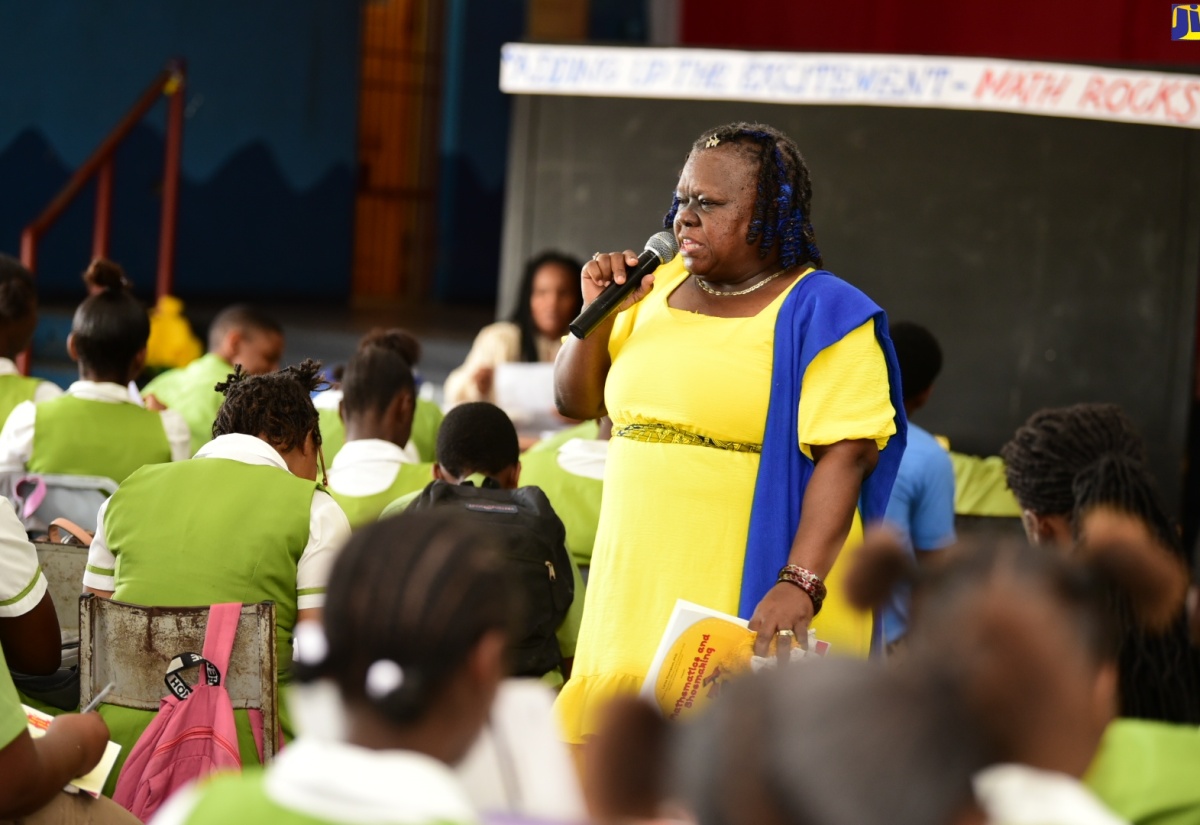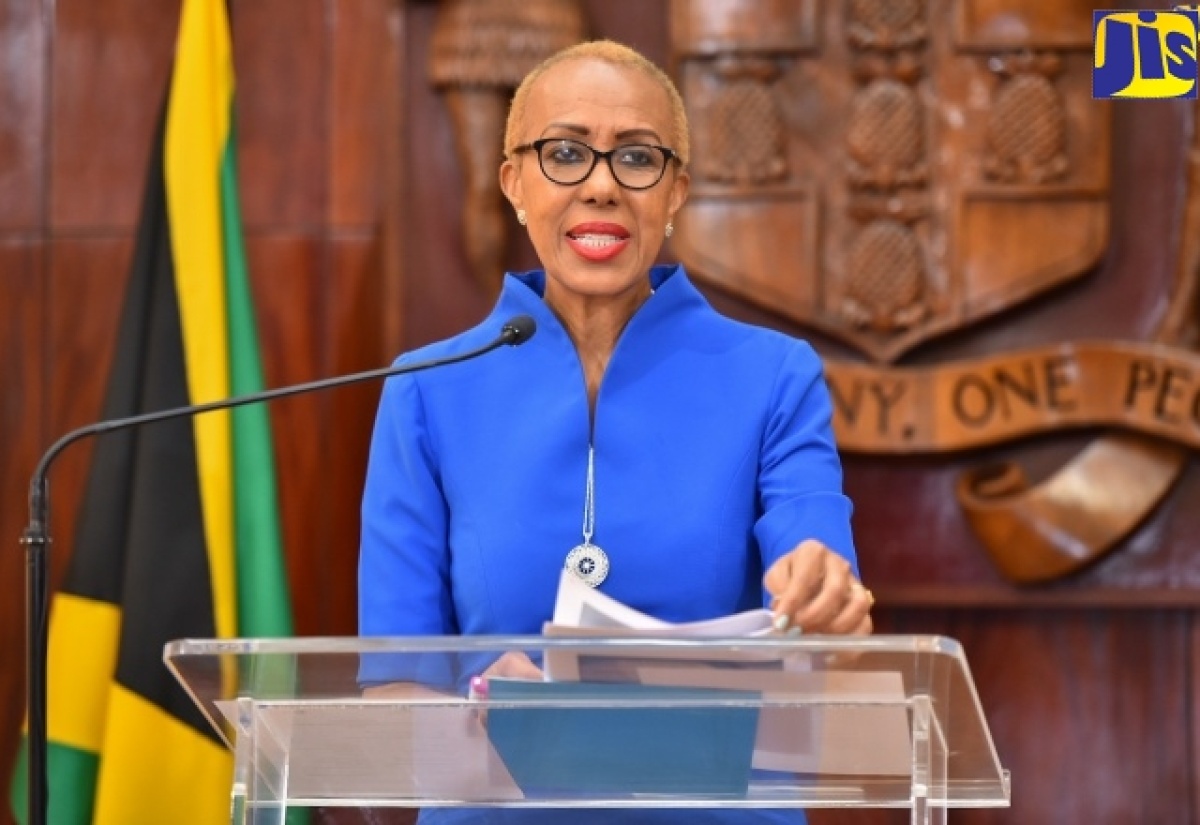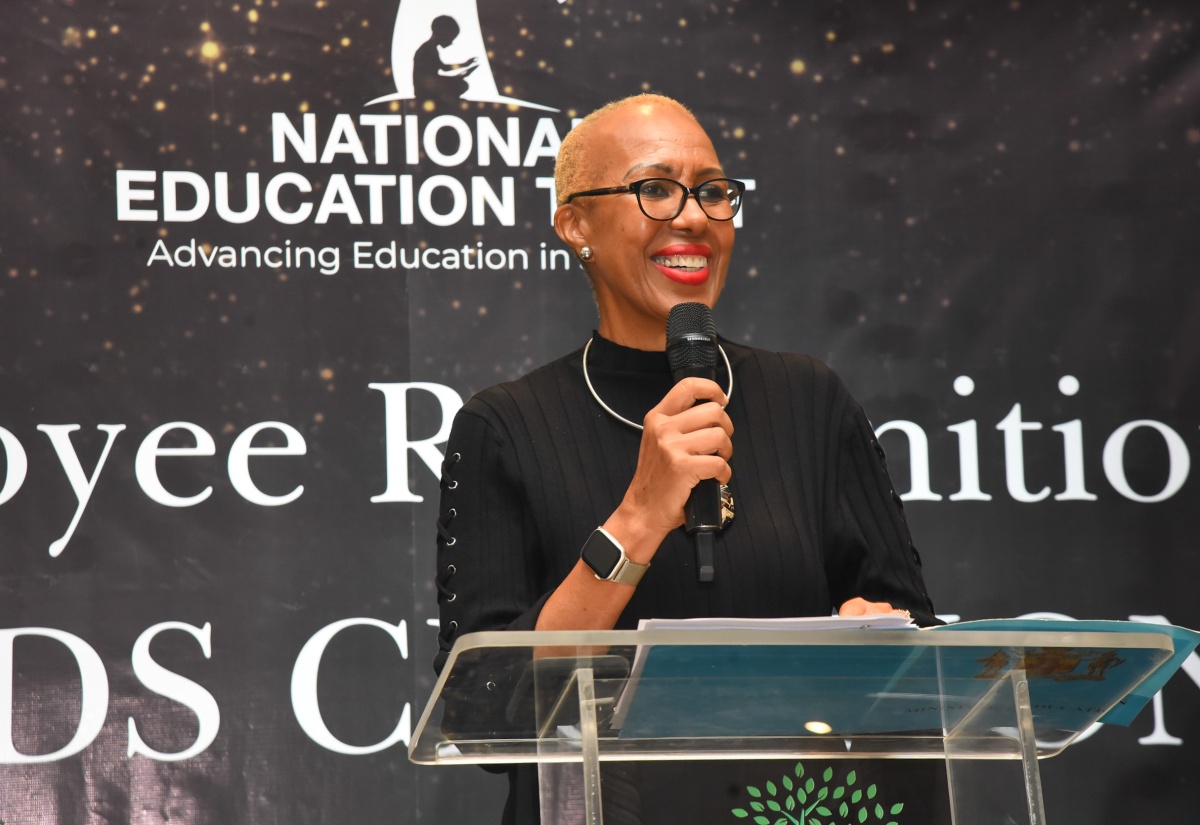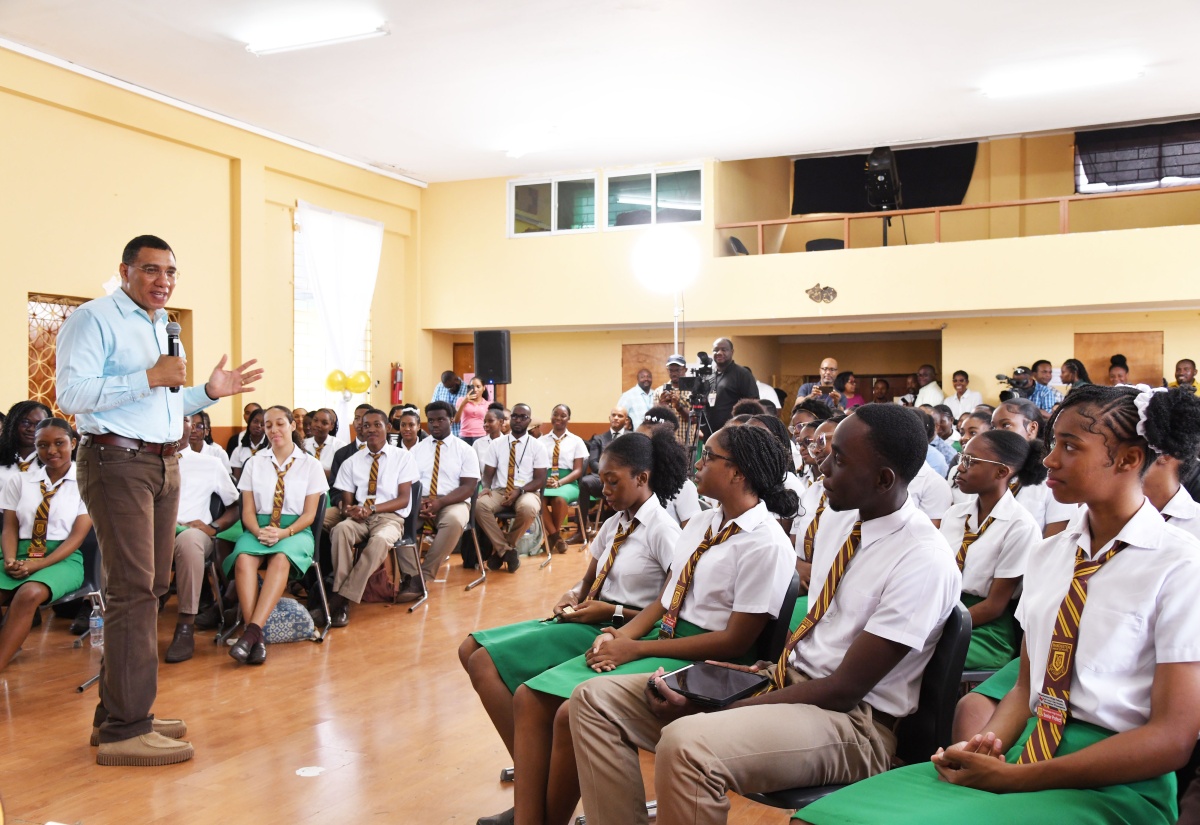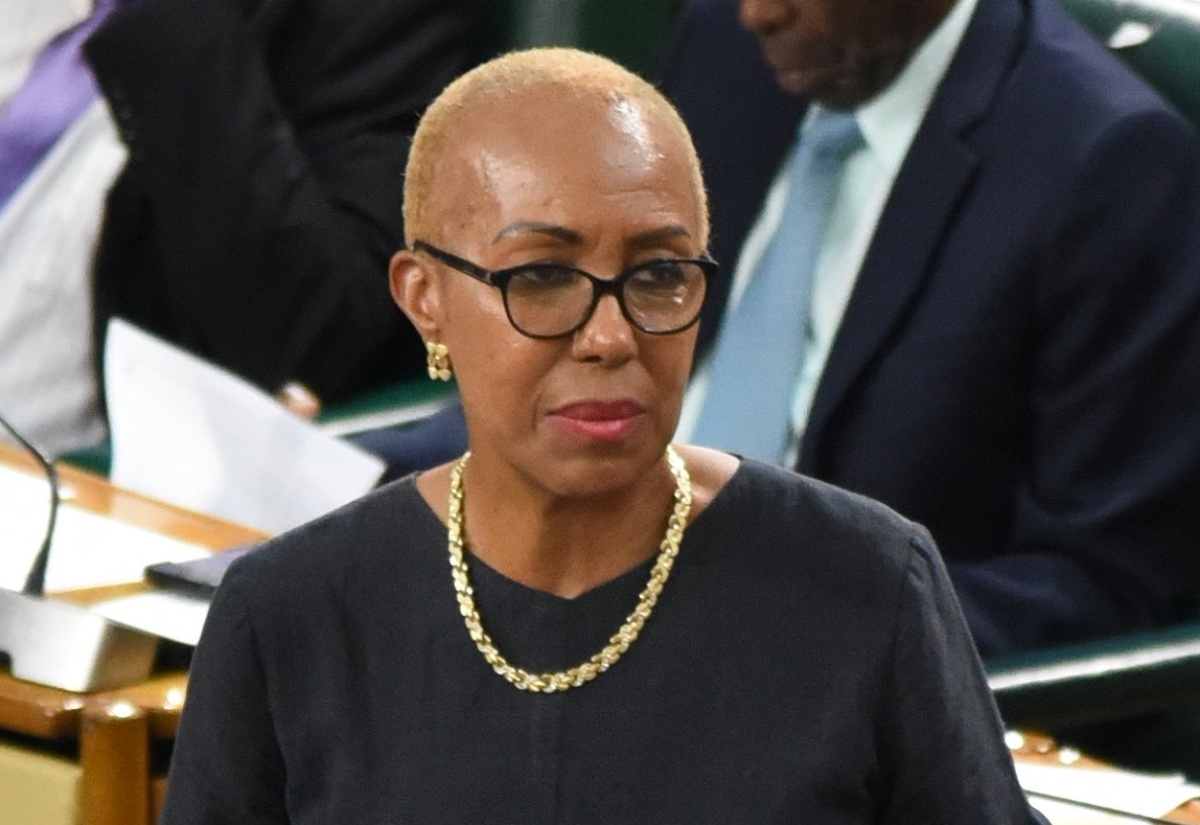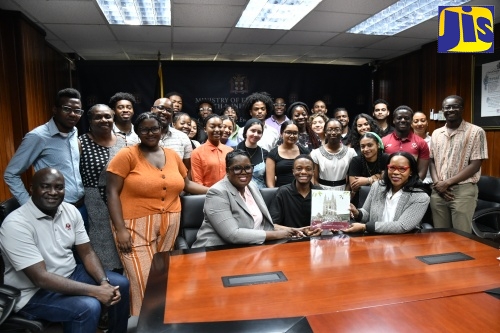Students are being encouraged by Minister of Health and Wellness, Dr. the Hon. Christopher Tufton, to make physical activity a healthy lifestyle habit.
He urges them to identify an engagement that they can actively participate in daily, particularly something they enjoy.
“If you like running, run around the house; if you like walking, go out and walk for half an hour. If you like swimming and you can, do a little swimming; and if you like hiking, go and hike,” the Minister said.
He was speaking during Friday’s (April 26) National School Moves Day event at Manchester High School in Mandeville.
Dr. Tufton noted that a significant number of young people have been enticed by technology to the extent where they are largely preoccupied with devices, such as smartphones, rather than physically interacting with friends and colleagues.
He said this is compounded by their exposure to attractively packaged ultra-processed foods that are advertised through media outlets they regularly access which, in instances, have enticed them to spend more time snacking rather than engaging in activities consistent with healthier lifestyles.
Dr. Tufton noted that this level of inactivity and nutritional choices are resulting in too many young people now suffering from lifestyle diseases, citing diabetes, high blood pressure, and obesity among the most common of these.
“All of these things are going to affect them in years to come. So while they may not feel it now, as their parents, guardians, teachers and administrators, we need to do more to encourage children to go outside, leave the smart phones and get off the Internet to avoid some of the… greasy, salty sugary, fatty ultra-processed snacks… and get back to the basic [healthy] lifestyle,” he underscored.
Dr. Tufton also encouraged teachers to take steps in ensuring that children leave the classroom during breaks and go outdoors to engage in physical activities, as long as these are healthy and wholesome, adding that this “will be good for them.”
Meanwhile, Minister of State in the Ministry of Education and Youth, Hon. Marsha Smith, encouraged the students to embrace and recognise the importance of National School Moves Day.
She said one of the best ways to safeguard themselves against lifestyle diseases is by engaging in physical activity.
“I want you to see physical activity as an important medicine to keep your bodies, minds and spirits healthy,” she said.
Manchester High School Principal, Jasford Gabriel, also underscored the importance of physical activity.
“There is a close correlation between physical fitness and mental alertness; this means you [will] do better in your school work when you are physically fit,” he said.



